Each semester the Koehler Center hosts a luncheon event and invites a guest speaker to conduct a workshop highlighting innovations in teaching and learning.
View upcoming Special Events on our Events page.
View the archive below for information about past Special Events.
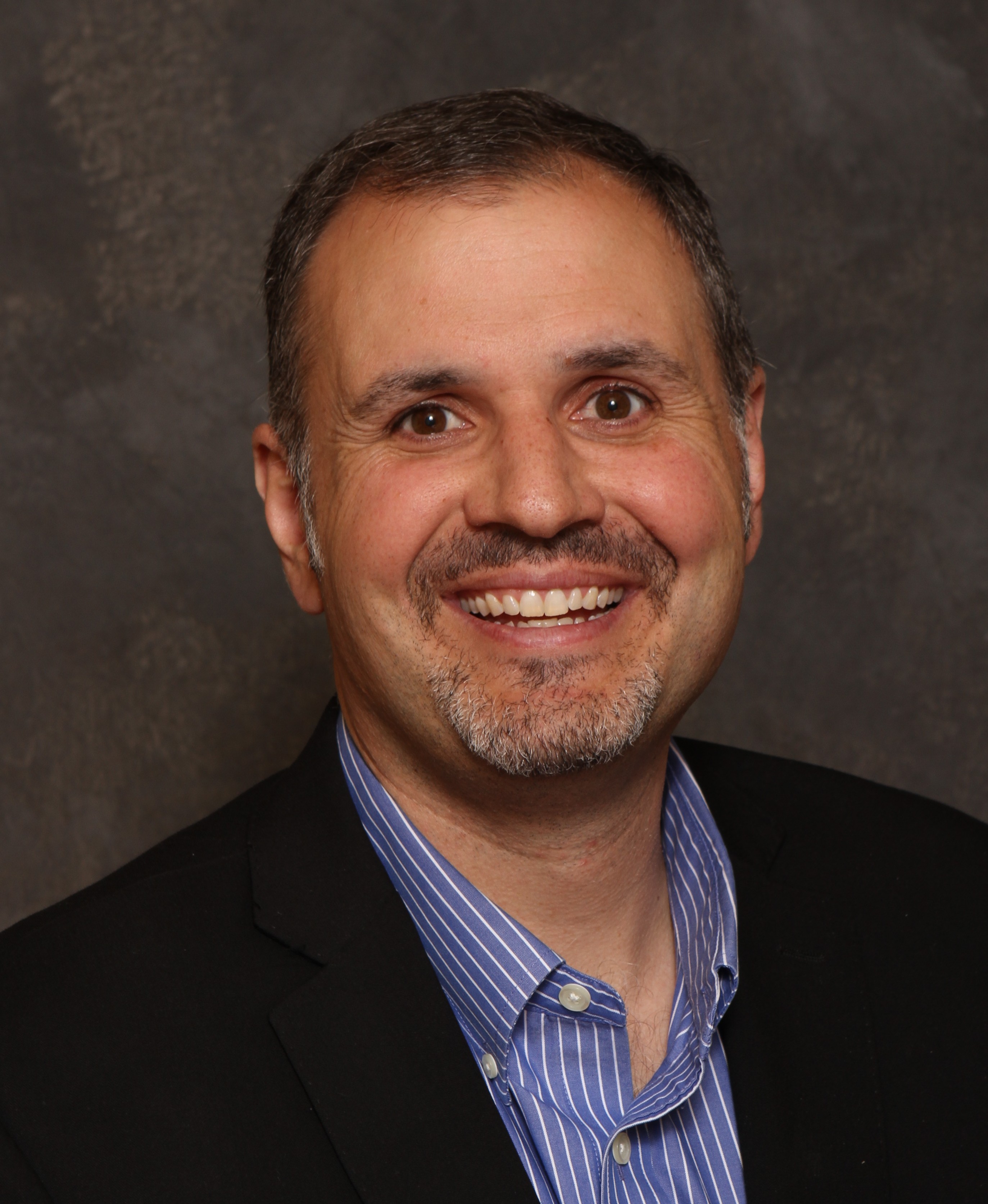
Jeff Borden
Your Learning Ecosystem Is Discouraging Learning
Presented by Dr. Jeff Borden
March 6, 2019
Dan Pink famously pointed out the disconnect between what researchers know to be true versus how organizations behave. We know more about the brain, learning science, and education technology-enhanced learning than ever before in history. Yet much of that research is unknown by practitioners, let alone leveraged.
Please join Dr. Jeff Borden, a professor, and administrator who has spent more than twenty years studying the research and trying to help colleges and universities apply the most effective, research-based practices for all learning modalities. See what innovation can (and even should) look like at TCU.
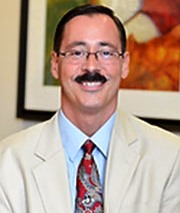
Randall Osborne
“I’m the Most Open-Minded Person I Know”: Truly Being Honest About my Intercultural Sensitivity
Presented by Dr. Randall Osborne
March 2, 2017
The focus of this keynote is the introduction of Bennett’s Developmental Model of Intercultural Sensitivity as a framework for intercultural awareness, training, and incorporation into classrooms.
The main idea is that with a developmental framework (e.g., Bennett, 1994), we can create a culture for intercultural sensitivity that becomes the foundation for any individual, department, college, or university.
Those in attendance will be introduced to Bennett’s Model, being given an opportunity to reflect on where they believe they locate within Bennett’s developmental levels (denial, defense, minimization, acceptance, adaptation, or integration), and engage in discussion on how to promote self-development along the continuum in preparation for promoting student progress.
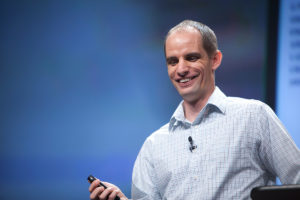
Michael Wesch
Teaching Upside Down & The Quest for the Perfect Syllabus
Presented by Dr. Michael Wesch
September 23, 2016
Three years ago, in the midst of a teaching funk, an anthropology professor decided to use the tools of anthropology to figure out why his class was no longer connecting as deeply and how he could revitalize his teaching. Since then he has been taking his lunches with students and listening to their life stories. He has become a student again, challenging himself to learn new things to remind himself of all the struggles and joys of learning. He has even done anthropological fieldwork at frat parties, college bars, and midnight life-philosophy discussions on the rooftops of campus. From these studies, he has come to understand that students want more from their college experience than just the tools to make a living. They also want the wisdom to craft a life worth living, and they will need courage, passion and compassion to see it through. How can we craft our courses to speak to this? When we prepare to teach a class, we often spend a great deal of time deciding what we are going to teach, and sometimes how to teach it, but we spend less time contemplating the “big why” of our course, and perhaps even less time considering who our students are and who we want them to become. In this talk, we flip those questions upside down. We will come to understand our students more deeply, revisit our own best learning moments, and use these insights to craft a syllabus that is more than just curated content and speaks to the depth and dynamics of the journey our students are on.
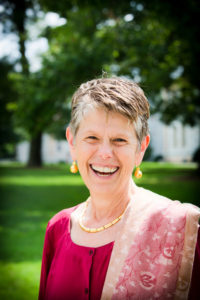
Bobbi Patterson
How and Why Contemplative Pedagogies Can Help Student Learning at TCU
Presented by Dr. Bobbi Patterson
September 30, 2016
In this interactive workshop, Bobbi Patterson will introduce participants to a variety of contemplative pedagogies. She will explain how using such pedagogies can help students learn better, and will provide concrete examples from her own teaching experience, such as how student understanding can be enriched through structured observation exercises, comparisons of ethical assumptions conveyed in class texts with students’ own ethics, and analysis of component parts of an argument or experience. She will also discuss techniques for assessing the success of contemplative pedagogies at facilitating student learning.
Dr. Patterson will present several modules during the workshop. Each will involve small-group work among faculty to clarify understandings and determine how a particular pedagogy might work in each instructor’s classes.
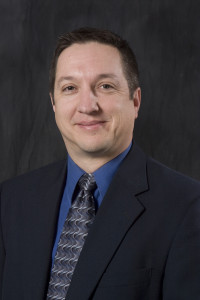
Todd D. Zakrajsek
Keynote – “The New Science of Learning: How Research is Changing the Way We Teach”
Workshop – “Putting Research Into Action: Concepts, Strategies, and Tips for an Engaged Classroom”
Presented by Dr. Todd Zakrajsek
October 2, 2015
Keynote Description – There is a proliferation of misinformation pertaining to how students learn and how best to teach. Students themselves often do not fully understand their own cognitive processes, typically relying on implicit assumptions and trial-and-error to learn new material. The good news is that research provides clear evidence pertaining to what works best in the classroom with respect to human motivation and learning. This session is designed to provide you with evidence about how students learn, show you methods to get students more involved in the content, and demonstrate relevant applications from pedagogical research that can be used in just about any class. You will even have the opportunity to try out a few classroom strategies designed to increase student engagement.
Workshop Description – What can instructors do to facilitate learning when they encounter students who seem uninterested and even apathetic toward course content and assignments? Part of the responsibility for learning belongs to students, but as faculty, we can find new ways to motivate, inspire, and maybe even cajole students to learn. In this workshop we will explore some research-based strategies and tips faculty can use to make classroom learning, perhaps one of the most artificial learning settings, a more meaningful experience for students. The workshop facilitator will use theories of learning and motivation as a basis for creating strategies to increase student engagement in course content and class sessions.
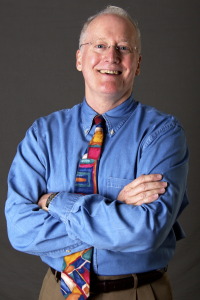
Dr. Mark Taylor
Teaching Generation NeXt
Keynote – Meet Generation NeXt: Understanding and Teaching Today’s Learners
Workshop – Teaching Today’s Learners
Presented by Dr. Mark Taylor
March 27, 2015
Keynote Description – Today’s learners are different. Our traditionally aged students have characteristics and expectations that present unique challenges to those of us charged with teaching, serving and supervising them through their university experience. Their issues with academic preparation, responsibility and self-esteem, consumer expectations, use of technology and styles of interacting can impact, and interfere with, their learning, persistence and academic success at school, and workplace readiness and success. There is fairly compelling evidence that they are not responding particularly well to traditional instruction in traditional academic settings in terms of learning outcomes and workplace readiness.
This program will help faculty and staff understand the social, personal and academic traits and preferences our students bring to college, how these characteristics impact learning, persistence and success, and how we can best help all of our students reach their educational and personal goals in the changing educational landscape.
Workshop Description – This workshop will help faculty transition more fully to a model of learning based on increasing student activity and leveraging available technologies to improve instructional efficiency and effectiveness. An instructional model and methods to increase students’ responsibility for their own learning, personal ownership of class goals and to improve students reaching meaningful learning and developmental goals will be described with immediately applicable techniques appropriate and effective with all learners.
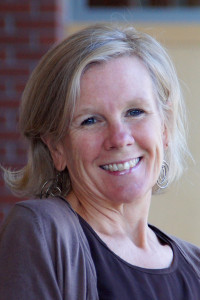
Kelly Ward
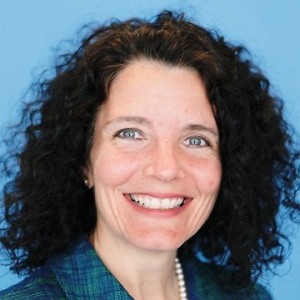
Pam Eddy
Women in the Academy
Keynote – “Smile Work” and the Double Bind
Breakout Session – Academic Motherhood: Managing Complex Roles
Breakout Session – Scholarship of Teaching and Learning: Building a Research Line of Inquiry from Your Class
Presented by Dr. Pamela Eddy and Dr. Kelly Ward
September 25, 2014
Keynote Description – Gender expectations socialize men and women differently, and this spills over into college classrooms. Women faculty are often expected to fill in as proxy mothers and do the “smile work” of the academy – creating a nurturing and safe environment, supporting emotional needs of students, and building community. Research on the chilly climate in some disciplines, the lack of women role models in traditionally male programs, and student socialization regarding discussion participation combine to create different classroom experiences for students and faculty alike. In this keynote presentation, Pam Eddy and Kelly Ward will discuss the influence of gendered faculty roles on the classroom experience, review tactics for student engagement, and create scenarios to provide discussion of oftentimes sensitive topics regarding gender and classroom engagement.
Breakout Session – Academic Motherhood Description – Navigating work and family within the faculty career can be both challenging and rewarding. The focus of this session is how faculty members, as parents, manage work and family within the academic career context. Kelly Ward will guide this session with findings from a longitudinal research project that looks at how family formation and career trajectories integrate throughout different career stages
Breakout Session – SOTL Description – In this session, Pam Eddy will provide definitions of the Scholarship of Teaching and Learning (SoTL) and stimulate a discussion of how faculty might combine the actions of research and teaching to meet multiple professional needs. First, we will discuss how to build a research component into your teaching to provide information and data to create presentations and publications on the scholarship of teaching. Second, we will review how your scholarship of teaching will help inform and improve your classroom teaching. A variety of forums and outlets for SoTL research will be included.
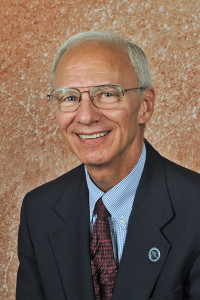
Dan Brown, Pharma
Keynote – Strategically Designing Teaching Methods to Achieve Learning Outcomes
Workshop – An Introduction to Team-Based Learning and Immediate Feedback Testing
Presented by Dan Brown, PharmD
February 20, 2014
Keynote Description – In this hands-on luncheon and keynote, faculty will learn to:
- Describe the dynamics of the Outcome-Centered Learning Model
- Explain how the three elements of critical thinking relate to Bloom’s Taxonomy and the concept of deep learning
- Determine how changes in technology and information impact the way students relate to education
- Identify the critical components of engaged learning and apply principles of engaged learning to develop new teaching strategies
- Implement Socratic questioning techniques to enhance student participation during lecture or discussion.
Workshop Description – Team-Based Learning is a special form of collaborative learning that uses a specific sequence of individual work, group work, and immediate feedback to create a motivational educational setting. Students hold each other accountable for coming to class prepared and contributing to discussion, taking education and responsibility into their own hands. Please note: this workshop requires faculty to prepare beforehand by watching a short video and reviewing a three-page handout.
In this hands-on workshop, participants will learn to:
- Transition from traditional lecturing to methods that guide students to learn on their own
- Strategically form diverse teams in which students work together to help each other learn
- Motivate students to come to class prepared and ready to learn
- Generate energy and willing participation among students in class by using the four S’s of application exercises
- Apply the power of the Immediate Feedback Assessment Technique (IF-AT®) “scratch and win” method to engage students in collaborative learning
- Describe the characteristics of effective peer feedback methods
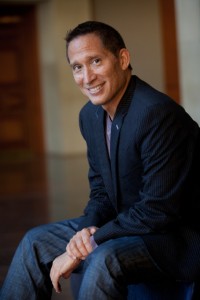
Dr. Jose Bowen
Teaching Naked: How Moving Technology out of your College Classroom will Improve Student Learning
Presented by Dr. Jose Bowen
September 19, 2013
Technology is changing higher education, but the greatest value of a physical university will remain its face-to-face (naked) interaction between faculty and students. The most important benefits to using technology occur outside of the classroom. New technology can increase student preparation and engagement between classes and create more time for the in-class dialogue that makes the campus experience worth the extra money it will always cost to deliver. Students already use online content, but need better ways to interact with material before every class by taking online quizzes, doing interactive online assignments, playing games, asking questions or working in online communities. By rethinking our assignments, use of technology, and course design, we can create more class time for the activities and interactions that most spark the critical thinking and change of mental models we seek
In this hands-on keynote presentation, Dr. Jose Bowen, author of Teaching Naked and popular TED Talks, will share thoughts and strategies for improving student learning by moving technology outside of the classroom.
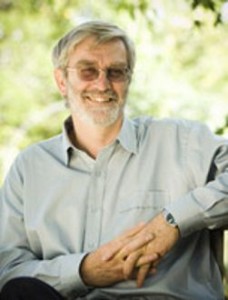
Dr. Gordon Sanson
Designing Learning Spaces
Presented by Dr. Gordon Sanson
November 12, 2013
Presentation by Professor Gordon Sanson of Monash University (Australia) and Academic Liaison at Pearson eCollege (US).
Dr. Sanson will share lessons from Monash University’s journey in designing learning spaces for the 21st century classroom and integrating spaces with the development of a new technology for classroom engagement. This journey was guided by the recognition that Face-to-Face classroom time is precious and expensive and too often sub-optimal or even squandered because of poor learner preparation, barriers to engagement and the pressures of a social situation.
Gordon Sanson believes that education is undergoing transformational change, but is concerned that much of this change is technologically driven by what can be done, rather than by what needs to be done. Nonetheless, technology can give every learner a voice, contribute to better engagement, and foster individuals taking responsibility for their own learning. However, the biggest challenges may be the institutional and personal constraints on taking risks and adopting new practices. Effectively embracing the emerging opportunities requires cultural change in education.
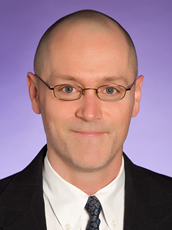
Mark Dennis, Texas Christian University
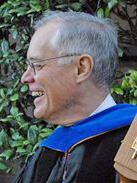
Larry Carver, The University of Texas at Austin
Reacting to The Past
Presented by Dr. Larry Carver and Dr. Mark Dennis
February 15, 2013
This workshop will introduce “Reacting to the Past” (RTTP), an interdisciplinary and engaging method of inquiry created by Mark Carnes, professor of American history at Barnard College. Carnes developed RTTP to excite and engage his students with the past while coming to better appreciate the “contingency in human history and thus the role of individual action and engagement.” Over the last fifteen years, RTTP has developed into a well-organized program with an annual conference on the Barnard campus.
This workshop will be led by Larry Carver from the University of Texas-Austin and Mark Dennis from TCU. Dr. Carver, Director of UT’s Liberal Arts Honors Programs, teaches RTTP classes and has served as the facilitator for the Partition of India game at Barnard’s annual conference. Dr. Dennis teaches in TCU’s Religion Department and has been using the RTTP pedagogy in class for five years.
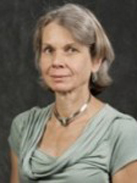
Donnalee Dox, Texas A&M University

Mark Dennis, Texas Christian University
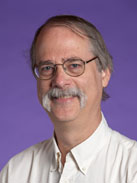
Andy Fort, Texas Christian University
What is Contemplative Studies, and what is its place at TCU?
Presented by Dr. Andy Fort, Dr. Mark Dennis and Dr. Donnalee Dox
September 19, 2012
The study and practice of contemplation in the academic context (now called Contemplative Studies) can be found in almost any aspect of the arts, humanities, and sciences, including such disciplines as psychology, medicine, and neuroscience as well as religion, literature and visual/fine/performing arts. Under the auspices of the Koehler Center for Teaching Excellence, we plan to hold a panel discussion about the state of the developing field of contemplative studies, then follow with a brainstorming session to see what is possible and desirable in this context at TCU.
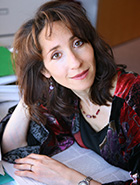
Elissa Epel, UC San Francisco
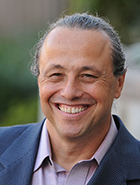
Alejandro Chaoul, MD Anderson Cancer Center
Stress, Wellness, and Contemplative Practice in Health Care and Higher Education
Presented by Dr. Alejandro Chaoul and Dr. Elissa Epel
April 12, 2013
Whether in school, hospital, or at work, sick or well, we feel the effects of stress, feeling rushed, lacking centered attention, and obligated to multitask. How can we manage our health and environment better to maximize wellness? What are some leaders in this field doing to help us cultivate physical, mental, and emotional balance today?
We are fortunate to have two such trailblazers join us. Elissa Epel, professor of psychiatry at UC San Francisco and Alejandro Chaoul, professor in the Integrative Medicine Center at MD Anderson Cancer Center in Houston will share about their work, and then discuss some of the methodological issues, both in humanities and science, that they see their work raising.
Following their presentation, there will be two sessions, beginning at 4pm, for further discussion. One will be led by Suzy Lockwood, professor of Nursing at TCU, on the topic of Integrative Health Sciences: What are the opportunities for programming and studies at TCU?; the other, led by Andrew Fort, professor of Religion at TCU, will be on the current status of and future possibilities for the emerging field of contemplative studies in the Metroplex.
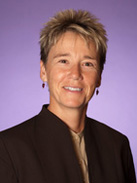
Lindy Crawford, Ann Jones Endowed Chair in Special Education at TCU
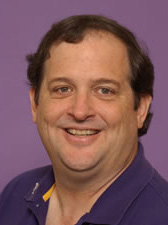
Dennis Cheek, Abell-Hanger Professor of Gerontological Nursing at TCU
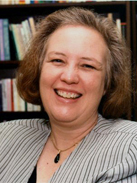
Sarah Robbins, Lorraine Sherley Chair in Literature at TCU
Teacher-Scholar Writing Workshop: Balancing the Roles of the Teacher-Scholar
Presented by Dr. Sarah Robbins, Dr. Dennis Cheek, and Dr. Lindy Crawford
April 17, 2013
The Koehler Center for Teaching Excellence and the TCU Center for Writing are proud to offer a TCU teacher-scholar writing workshop. Balancing the roles of the teacher-scholar is often hard to do, especially during the academic year. Come spend a morning with your colleagues and hear tips, tricks, stories, and strategies for balancing academic scholarship and teaching excellence.
We’ll begin with morning with a short panel conversation, during which time Sarah Robbins (Lorraine Sherley Chair in Literature), Dennis Cheek (Abell-Hanger Professor of Gerontological Nursing), and Lindy Crawford (Ann Jones Endowed Chair in Special Education) will discuss the on-going balancing act of teaching, scholarship, and service. After the panel, Steve Sherwood and Cynthia Shearer of the TCU Center for Writing will administer a short writing self-assessment to help participants develop a greater understanding of their writing process and map writing and research plans for the regular academic semesters.
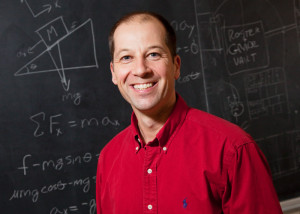
Dr. Tim Stelzer
Using Clickers to Enhance Student Learning
Presented by Dr. Timothy Stelzer
November 9, 2012
Clickers (classroom polling systems) can enhance student participation, learning, and motivation. Join Dr. Tim Stelzer from the Department of Physics at the University of Illinois for a discussion of best practices in clicker pedagogy, and an overview of the logistics of the i>clicker response system. We’ll also provide hands-on experience and practical advice for introducing clickers into your classes.
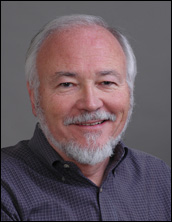
John Tagg
Conversations with John Tagg
Presented by Dr. John Tagg
October 5th, 2007
Even though a keynote address is typically a more formal presentation of information, John’s version is a bit more interactive. Prepare to be engaged and prompted to think about college and university teaching and its practices in a different light. John will ask you to don a new perceptual filter through which to view teaching and the practices devised to accomplish learning at college and university campuses. Be forewarned: John Tagg is a provocateur. You may leave wondering about the strategies, culture, and practices in place at your institution that promote student learning (or not). You will be fortunate, however, to have also been presented with alternative ideas for practice as well as indications of their effectiveness at various institutions where the move to the learning paradigm and its focus on student outcomes are working well.